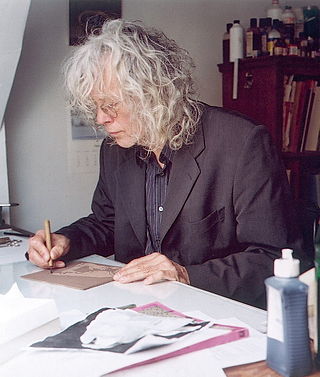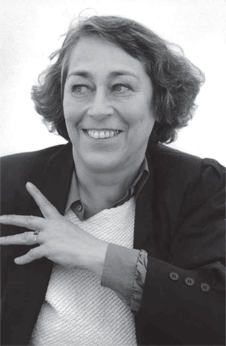Grading in education is the process of applying standardized measurements for varying levels of achievements in a course. Grades can be assigned as letters, as a range, as a percentage, or as a number out of a possible total.

Education in Germany is primarily the responsibility of individual German states, with the federal government only playing a minor role.

A Hauptschule is a secondary school in Germany, starting after four years of elementary schooling (Grundschule), which offers Lower Secondary Education according to the International Standard Classification of Education. Any student who attends a German elementary school can go to a Hauptschule or Gesamtschule, while students who want to attend a Realschule or Gymnasium need to have good marks in order to do so. The students spend five to six years at the Hauptschule, from 5th to 9th grade. They finish around age 15 to 17.

Gymnasium, in the German education system, is the most advanced and highest of the three types of German secondary schools, the others being Hauptschule (lowest) and Realschule (middle). Gymnasium strongly emphasizes academic learning, comparable to the British sixth form system or with prep schools in the United States. A student attending Gymnasium is called a Gymnasiast. In 2009/10 there were 3,094 gymnasia in Germany, with c. 2,475,000 students, resulting in an average student number of 800 students per school.

Friedrich Karl Waechter was a renowned German cartoonist, author, and playwright.
During the last decades the number of people living in poverty in Germany has been increasing. Children are more likely to be poor than adults. There has been a strong increase in the number of poor children. In 1965 only one in 75 children lived on welfare, in 2007 one in 6 did.
Abitur after twelve years, or Gymnasium in eight years describes the reduction of the time spent at a university-preparatory high school from nine school years to eight school years, by having the students take more classes each year. It is implemented in many States of Germany. In the states of Berlin, Brandenburg, and Mecklenburg-Vorpommern, the reduction meant a change from seven years to six years spent in high school because in these states primary education continues until Class 6. In Saxony and Thuringia it is already a long established norm to take the Abitur after twelve years. The principal argument for the reduction is the comparatively long times for vocational education in Germany.

The German School of Guayaquil is a multilingual school in Guayaquil, Ecuador. It was founded in 1957 by Renate Lemke to meet the necessities of the German immigrants in the city.
Education in Hamburg covers the whole spectrum from kindergarten, primary education, secondary education, and higher education in Hamburg. The German states are primarily responsible for the educational system in Germany, and therefore the Behörde für Schule und Berufsbildung is the administrative agency in Hamburg. The Behörde für Wissenschaft und Forschung has the oversight for universities and colleges.

Wilhelm Heitmeyer is sociologist and professor of education specializing in socialisation. From 1996 to 2013 he headed the Institute for Interdisciplinary Research on Conflict and Violence (IKG) at Bielefeld University. Since retiring as director, he has held the position of Senior Research Professor at IKG.

The Helene-Lange-School is a comprehensive school in Wiesbaden, Germany. The school received much media coverage for its pedagogic methods. While proponents of comprehensive schools believe it is one of Germany's best schools, opponents believe it is just a run-of-the-mill-school that serves privileged children who would do just as well attending any other kind of school.
Differences in academic achievement among different ethnic groups in Germany is a topic that has drawn the interest of the German academic and scientific communities.
Heinz-Herbert Noll is a German sociologist.

lichtung is a poem of Austrian author Ernst Jandl, which combines deliberations about the directions left and right with a change of the letters l and r, so resulting in "lechts und rinks" instead of "rechts und links". It was published in Jandl's first volume of poems, Laut and Luise, in 1966 and, while it consists of just one stanza, it is among the most cited of Jandl's poetry.
Hermannsburg School, originally Deutsche Schule Hermannsburg, is a private school in Hermannsburg, KwaZulu-Natal, South Africa.

King Fahd Academy was a school in Lannesdorf, Bad Godesberg district, Bonn, Germany. The school, with an attached mosque, housing elementary school through high school, opened in 1995. Financed by the King of Saudi Arabia and sponsored by Saudi Arabia, it was named after King Fahd. The school was closed at the end of the 2016/2017 school year, after long-running criticism that it was attracting Islamists to Germany. The school's last director was Ibrahim Al-Megren.

Christel Hoffmann is a German theater scholar, dramaturge and pedagogue.
Hans-Georg Herrlitz is a German educator.

Anna, die Schule und der liebe Gott: Der Verrat des Bildungssystems an unseren Kindern is a non-fiction book written by German philosopher and author Richard David Precht and published in 2013 by Goldmann Verlag.

The (Allgemeine) Schulpflicht is a statutory regulation in Germany that obliges children and adolescents up to a certain age to attend a school. The Schulpflicht includes not only regular and punctual school attendance, but also participation in lessons and other school events, as well as doing homework.












